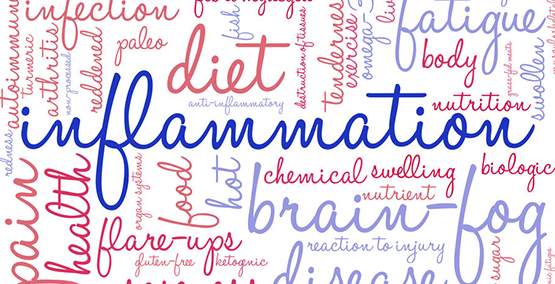
INFLAMMATION: THE BODY'S RESPONSE MECHANISM
Doctors and medical people talk about inflammation routinely, and you've probably seen it, when you've had a cut or an infection and the area turned red and became swollen. And if you think about the word itself, inflame comes from the Latin for setting on fire. And that's pretty much what's happening.
The tissues are like fire with 4 classic symptoms of inflammation:
- Redness
- Swelling
- Heat
- Pain
That happens as a response — with white blood cells and their different defense mechanisms quickly pouring in to attack an infection, an allergy or a cut, for example, trying to heal the tissues. And it's the pouring in of the white cells and extra fluid that causes many of those symptoms and sets off the pain.
When that inflammation is in the intestines, the swelling can also cause diarrhea, in part because the cramping pain shoots the intestinal contents along and in part, because the inflamed intestine can't absorb nutrients and fluid nearly as well.
And sometimes intestinal inflammation can lead to inflammation elsewhere as well, with the body overreacting and causing skin, joint or eye inflammation as well. What's interesting and a problem for our trying to conquer the inflammation is that these other areas can remain inflamed or even become inflamed even after the diseased intestine has been removed.

Billions of research dollars have chased (and found) some of the chemicals (called cytokines and defensins) that the body makes as part of this inflammatory process. That has led to some effective drugs that can interrupt the inflammation, allowing the tissues to heal more readily.
Now some of those dollars are being directed to finding and removing the triggers that start the inflammation in the first place. And that is where hope for a cure lies, because researchers now realize that inflammation may be involved in other diseases as well, asthma, heart disease, diabetes, and maybe even Alzheimer's, autism and aging. And those triggers can even be in your diet.
This article, as well as all others, was reviewed and edited by a member of our Medical Advisory Board.
Subscribe Be the first to know




